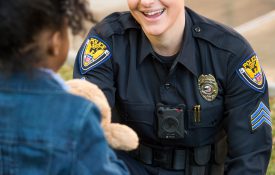-
Juvenile Justice – Moving From Punishment to Hope and Healing
Every year in the United States, nearly 250,000 youths are tried, sentenced, or incarcerated as adults. Though the age limit for juvenile court varies from state to state, the cutoff age in most jurisdictions is 18. Frankie Guzman, a lawyer at the National
-
Leading expert explains why you would falsely confess to a crime you did not commit
Would you confess to a crime you did not commit? Many people would respond instantaneously with a firm, “No.” But they do and often, says Saul Kassin, one of the country’s leading experts on false
-

Children Make Better Eyewitnesses than Adults in Certain Circumstances
Researchers find that young children aren’t always vulnerable to suggestive false memories and that adults go along with suggestions when they match up with their associations.
-

Myth: Eyewitness Testimony is the Best Kind of Evidence
Activities in this unit reveal how eyewitness testimony is subject to unconscious memory distortions and biases even among the most confident of witnesses.
-
A Big Test of Police Body Cameras Defies Expectations
Usually, we behave better when we know we’re being watched. According to decades of research, the presence of other people, cameras or even just a picture of eyes seems to nudge us toward civility: We
-

DC Government Study Finds Body-Worn Cameras Have No Effect on Police Uses of Force
The Lab @ DC, a research team within the Washington, DC city government, has just released the results of a two-year-long study investigating the effects of police body-worn cameras on policing in DC.

